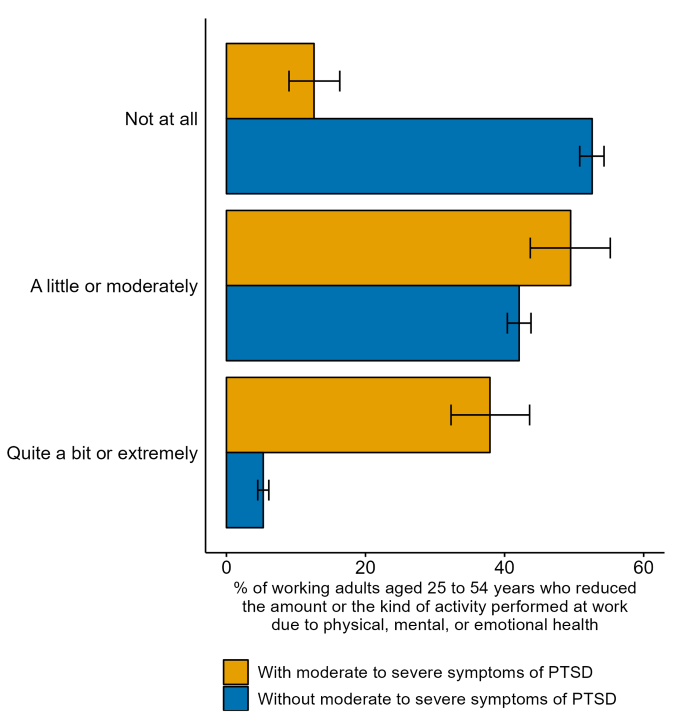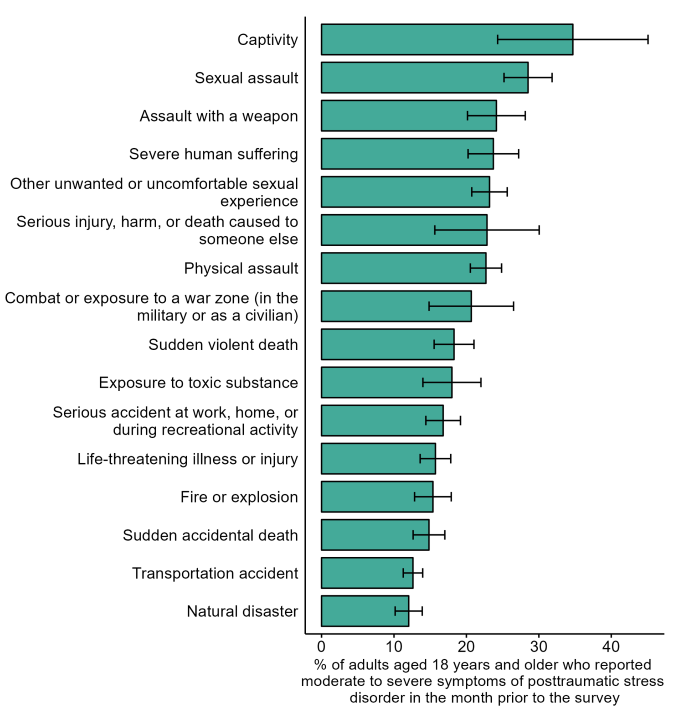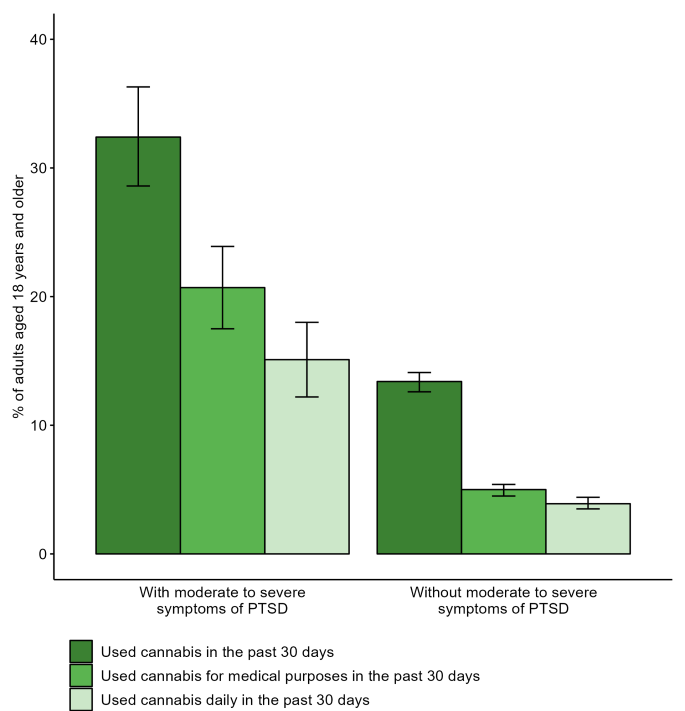Many Canadians unable to work due to PTSD, finds StatCan report

Having experienced traumatic events in their life is a factor affecting many Canadians’ ability to work, finds a recent Statistics Canada (StatCan) report.
Overall, 63 per cent of adults living in Canada say they have been exposed to a potentially traumatic event at some point in their lives.
And about eight per cent reported moderate to severe symptoms of PTSD in the month prior to completing the survey, conducted from September to December 2023.
Between 2019 and 2022, the number of members making mental health practitioner claims grew by almost 70 per cent, Sun Life previously reported.
PTSD and work
One-quarter (25 per cent) of the people aged 25 to 54 years who report moderate to severe symptoms of PTSD had not worked in the three months prior to completing the survey.
Among those with no report of moderate to severe symptoms of PTSD, 12 per cent had not worked in the three months prior to completing the survey.
Also, 38 per cent of those with moderate to severe symptoms of PTSD who had been working in the three months prior to completing the survey report that their own physical, mental or emotional health reduced the amount or the kind of activity they could do at work "quite a bit" or "extremely". This proportion is five per cent among people who did not report moderate to severe symptoms of PTSD.

Source: Statistics Canada (StatCan)
What is the leading source of PTSD?
Being held in captivity and falling victim to sexual assault are the most common causes of trauma for Canadians, according to StatCan.

Source: Statistics Canada (StatCan)
And many have unhealthy habits to cope with their trauma.
When comparing people with and without moderate to severe symptoms of PTSD, heavy drinking and cannabis use in the 30 days prior to completing the survey are more common in those who reported moderate to severe symptoms of PTSD, according to StatCan.
“During that period, 38 per cent of those experiencing moderate to severe symptoms of PTSD reported drinking heavily on at least one occasion and 15 per cent reported using cannabis daily. These percentages were lower among people who were not experiencing moderate to severe symptoms of PTSD over the same period (29 per cent reported drinking heavily on at least one occasion and four per cent reported using cannabis daily).”

Source: Statistics Canada (StatCan)
Here’s why employers should be concerned about workers’ substance use health, according to one expert.
How to support an employee with PTSD
Here’s how employers can support workers who are experiencing trauma, according to keynote speaker and corporate trainer Melanie Boyack’s Forbes article:
- Recognize mental health for what it is: “Mental health is more than a spa day or spending the day golfing. Mental health is more than giving a group of people an employee assistance program and then hoping they are magically fixed in three to five sessions. Rather, mental health is about fearlessly tearing down stigmas and aligning yourself as an example.”
- Lead by example: “Mental health is about addressing your own stigmas and fears and setting up a culture of experience and understanding. You need to address your own personal mental health at work, know what is possible with proper treatment and demonstrate the ability to create balance within the workforce. Mental health is modeling the personal/work-life balance and freedom only possible for someone who has cleared out their own demons and concerns.”
- Build awareness and empower employees with knowledge: “Mental health begins with an awareness, an understanding that production and the ability to produce at work is dependent upon a foundation and a skill set of mental health. It begins with empowering your employees with knowledge.”
Mental health counselling is popular with Canadians, according to a previous American Express Canada report.




